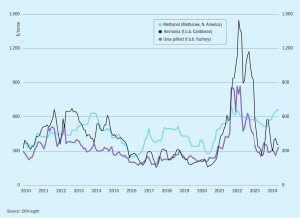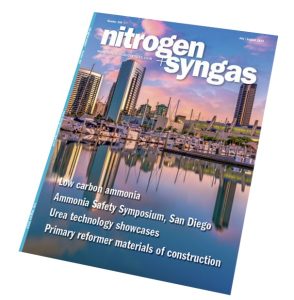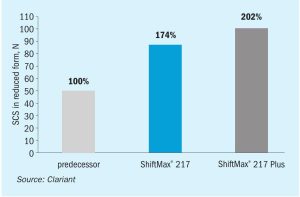People
Sachin Nijhawan has been appointed as the new CEO of thyssenkrupp nucera US, and Juergen Grasinger was named Chief Operating Officer to advance the company’s international growth strategy and expand its global leadership in the manufacturing and supply of hydrogen production technology. Based out of the thyssenkrupp’s Houston office, Nijhawan will be responsible for the business activities of the US operations.








